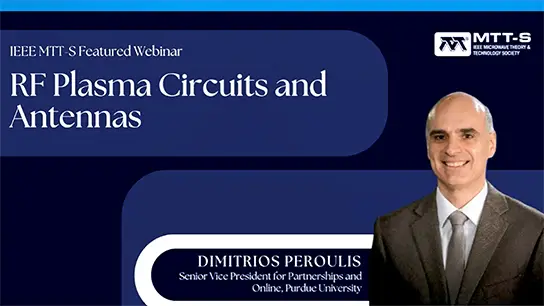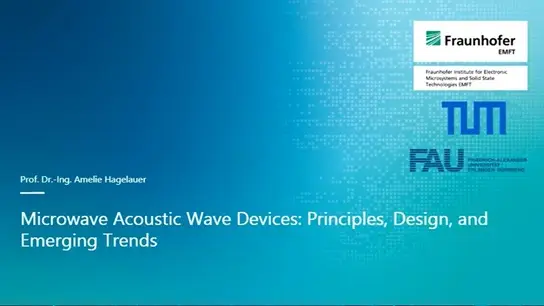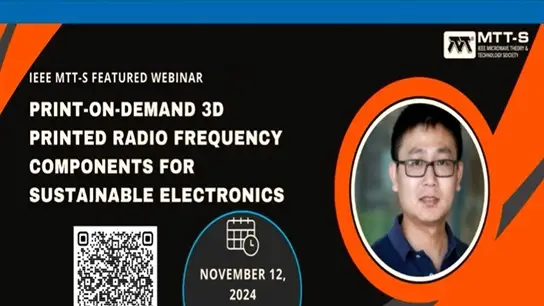Communicating Your Highly Technical Work to Non Specialists in Three Short Minutes Slides
John Bandler and Erin Kiley and Ana Kovacevic
-
Members: FreeMTT
IEEE Members: $9.00
Non-members: $14.00Pages/Slides: 47
28 Mar 2017
“If I am to speak ten minutes, I need a week for preparation; if an hour, I am ready now.” Variants of this quote are attributed to several different historical figures, attesting to the perennial challenge of delivering concise (and meaningful) presentations.
Sadly, the typical technical presentation features slides are crammed with text, small images, dense tables, lengthy equations, and detailed flow diagrams, the oral delivery being rushed in a monotone, the speaker running out of whatever time is allotted, whether three minutes, 20 minutes, or 50 minutes. Clearly, only three minutes or less to present highly complex, technical material to an audience that is educated but not specialized in your field poses a special challenge. Indeed, it takes practice, awareness and empathy, particularly if your aim is to kindle surprise and curiosity, and make your audience actually want to hear more rather than less. This, for example, is what the Three Minute Thesis® (3MT®) Competition is all about.
2017 marks the inaugural IMS2017 3MT® Competition, proposed by Bandler and Kiley. Here, in three minutes or less, using only one static slide and no other props, contestants will deliver their prepared presentations to a panel of non-specialist judges, and will be ranked on how engaging, accessible, and compelling they made their presentations. Contestants who go over time are disqualified.
As we draw on our experiences with 3MT®, including aspects of organizing, mentoring and competing, our webinar addresses important topics in the art of effective live communication of complex technical material in language suited to a non-specialist audience. Much of what we discuss, however, is also applicable to specialist presentations designed for specialist audiences; for example: story-telling, trust, first impressions, citation, subtext, authenticity, articulation, etiquette, slide composition, respecting your audience, admitting setbacks, and more. As examples, we analyze and discuss 3MT® case studies from several disciplines and suggest tools and strategies to for you to deliver your most engaging talk ever!
Sadly, the typical technical presentation features slides are crammed with text, small images, dense tables, lengthy equations, and detailed flow diagrams, the oral delivery being rushed in a monotone, the speaker running out of whatever time is allotted, whether three minutes, 20 minutes, or 50 minutes. Clearly, only three minutes or less to present highly complex, technical material to an audience that is educated but not specialized in your field poses a special challenge. Indeed, it takes practice, awareness and empathy, particularly if your aim is to kindle surprise and curiosity, and make your audience actually want to hear more rather than less. This, for example, is what the Three Minute Thesis® (3MT®) Competition is all about.
2017 marks the inaugural IMS2017 3MT® Competition, proposed by Bandler and Kiley. Here, in three minutes or less, using only one static slide and no other props, contestants will deliver their prepared presentations to a panel of non-specialist judges, and will be ranked on how engaging, accessible, and compelling they made their presentations. Contestants who go over time are disqualified.
As we draw on our experiences with 3MT®, including aspects of organizing, mentoring and competing, our webinar addresses important topics in the art of effective live communication of complex technical material in language suited to a non-specialist audience. Much of what we discuss, however, is also applicable to specialist presentations designed for specialist audiences; for example: story-telling, trust, first impressions, citation, subtext, authenticity, articulation, etiquette, slide composition, respecting your audience, admitting setbacks, and more. As examples, we analyze and discuss 3MT® case studies from several disciplines and suggest tools and strategies to for you to deliver your most engaging talk ever!


